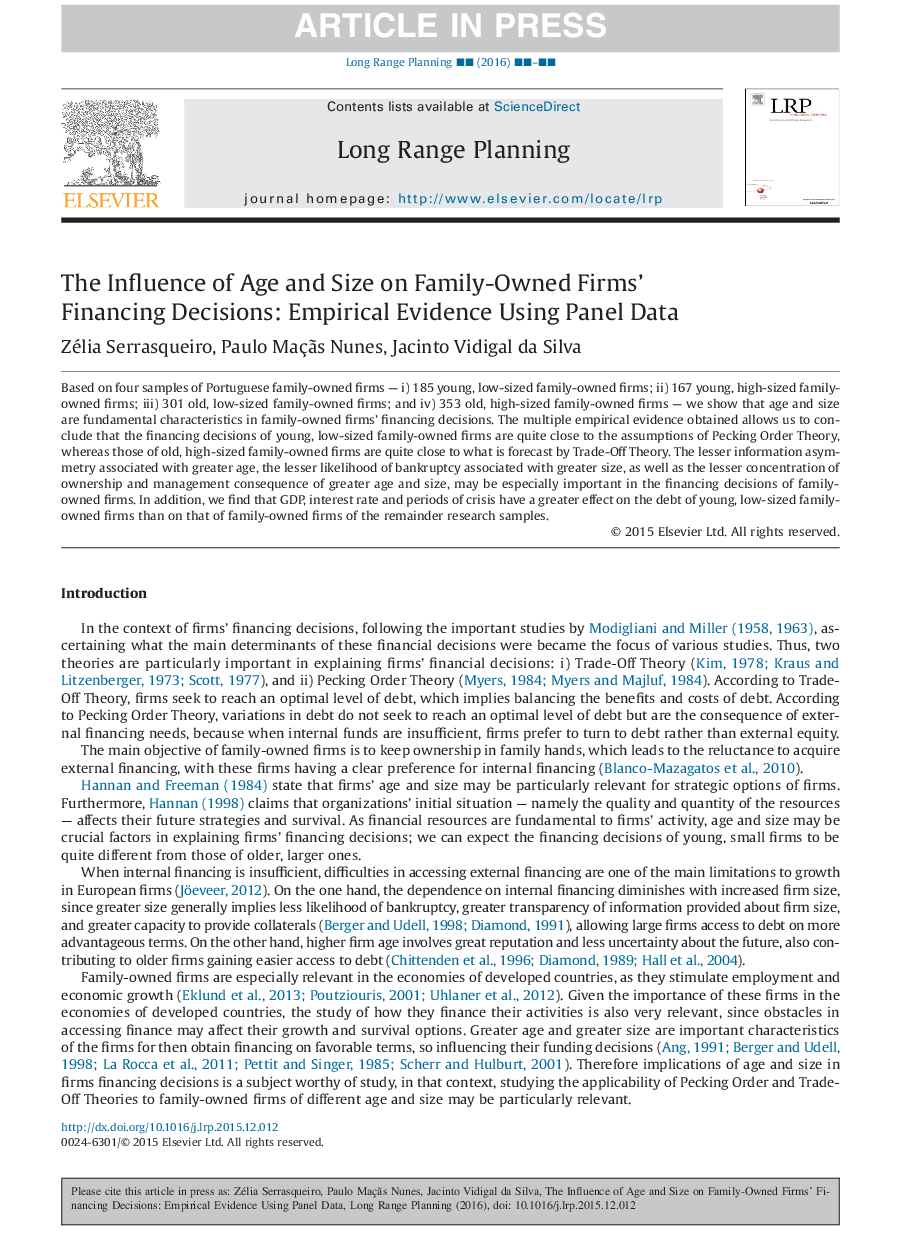| Article ID | Journal | Published Year | Pages | File Type |
|---|---|---|---|---|
| 5110316 | Long Range Planning | 2016 | 23 Pages |
Abstract
Based on four samples of Portuguese family-owned firms - i) 185 young, low-sized family-owned firms; ii) 167 young, high-sized family-owned firms; iii) 301 old, low-sized family-owned firms; and iv) 353 old, high-sized family-owned firms - we show that age and size are fundamental characteristics in family-owned firms' financing decisions. The multiple empirical evidence obtained allows us to conclude that the financing decisions of young, low-sized family-owned firms are quite close to the assumptions of Pecking Order Theory, whereas those of old, high-sized family-owned firms are quite close to what is forecast by Trade-Off Theory. The lesser information asymmetry associated with greater age, the lesser likelihood of bankruptcy associated with greater size, as well as the lesser concentration of ownership and management consequence of greater age and size, may be especially important in the financing decisions of family-owned firms. In addition, we find that GDP, interest rate and periods of crisis have a greater effect on the debt of young, low-sized family-owned firms than on that of family-owned firms of the remainder research samples.
Related Topics
Social Sciences and Humanities
Business, Management and Accounting
Business and International Management
Authors
Zélia Serrasqueiro, Paulo Maçãs Nunes, Jacinto Vidigal da Silva,
